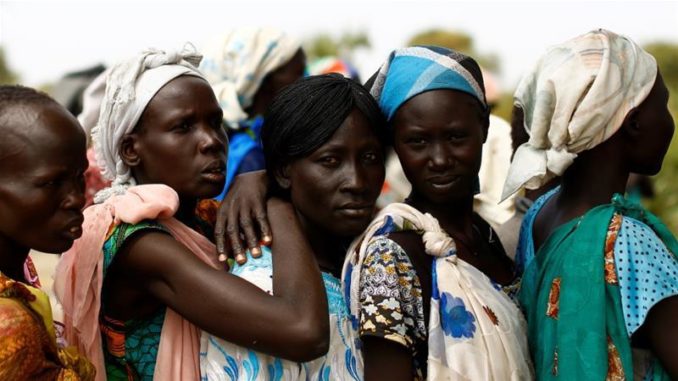
THERE has been no let-up in the oppression of the weak and the vulnerable by the Nigeria Police and other security agencies. They have lately stepped up their nefarious practice of harassment and extortion of women in the name of enforcing anti-prostitution laws. Worse, in the guise of enforcing an unwritten dress code, they are violating constitutional rights. They should be stopped by the authorities and challenged in the courts to entrench our fundamental freedoms and a truly democratic society.
The latest atrocity is typical: a task force made up of mostly police officers and officials of the Federal Capital Territory Administration Social Development unit, in a series of raids on highways, hotels and night clubs, rounded up about 70 ladies on allegations that they were prostitutes. So far so good, since soliciting money for sex is a crime under the law. But with Nigerian officialdom, things are hardly what they ought to be. According to the victims, some of them were raped by the policemen; some were released only after paying hefty bribes and those who could not pay the sum demanded had to submit to forced sex. Their testimonies, collated by civil society groups, were harrowing. One lady told journalists, “I was held down by three policemen while one of them raped me; he didn’t wear a condom. We were three in all that were raped by the same policemen.” Despite the extortion in cash and sex, the evil policemen still arraigned many before an Abuja mobile court.
This is bad enough; but even more deadly is the recurring practice of police officers and religious police of dubious legality harassing, arresting, extorting and prosecuting innocent Nigerians on the grounds of “indecent dressing,” which they arbitrarily define or determine according to their own religious or moral persuasion. This is unconstitutional, an unacceptable assault on the basic freedom of other Nigerians. Such travesty was displayed recently by the police in the FCT when they picked up innocent persons on the grounds that they were “scantily dressed,” while others were labelled “prostitutes” simply because they were on the streets late or were having fun in hotels or night clubs. There is no curfew in the FCT, while attending parties, clubbing and relaxing in hotels are not crimes, but are perfectly legitimate pastimes.
Victims of official impunity and the society should no longer tolerate the excesses of security personnel and religious bigots carrying on much like enforcers of Boko Haram or Islamic State “caliphates.” The promise of the Acting Inspector-General of Police, Mohammed Adamu, that the rapist police officers of the FCT would be punished is not enough. He should roll out sterner penalties and reopen investigations into past police atrocities. More; he should issue immediate guidelines to state police commissioners to stop the recurring practice of police enforcing a non-existent dress code.
In November 2017, some rogue policemen, bent on extortion, picked up two ladies at the Garrison area of Enugu, accused them of indecent dressing and released them only after they had forced them to hand over money. Ninety women, aged between 20 and 25, were in 2007 charged with “immodest dressing” at a Lagos magistrate’s court by the police. It turned out that a good number were respectable ladies picked up indiscriminately in various parts of the metropolis: some were raped; others had to part with money to gain their freedom. One of them, Chinwe Okoro, was a textile worker whose only crime was that she wore a mini skirt; another, Chiegozie Albert, a housewife and mother of two, was detained while on her way to the market.
The Acting IG should immediately reprimand Abayomi Shogunle, an assistant commissioner of police, who in response to the FCT outrage, reportedly declared that “prostitution is a sin under the two main religions practised in the FCT.” An officer of his ilk is a curious choice for the post of head of Public Complaints Rapid Response Unit that he occupies. Police are constitutionally empowered to enforce secular law, not “sin,” religious strictures or self-interpreted moral codes.
We urge the victims, with vigorous assistance from CSOs and civic-minded lawyers, to seek redress and compensation in the courts. Impunity, unchecked, eventually threatens the society. State governments and their agencies, especially the controversial hisbah in some northern states, should stop acting like the extremists. The Borno State Government failed to swiftly punish the felons who raped Grace Ushang, a youth corps member serving in Maiduguri, to death for wearing trousers as prescribed by the National Youth Service scheme; Borno is now the epicentre of terrorism by non-state actors and fanatics seeking likewise to violently impose their own religious and moral codes on all. A misguided, retrogressive bill introduced in the upper legislature by then Senator Ime Ufot Ekaette in 2008 to criminalise “indecent dressing” mercifully failed after an outcry.
Prescribing dress codes is not permissible in a democracy. No one should have the right to dictate morality to another outside the law. Police should stop indiscriminate arrest of innocents. Elsewhere, prostitution is combated with investigation and arrests are made after intelligence gathering, including undercover operations and “stings.” Police in Minnesota State, United States, last month smashed a prostitution ring, arrested 50 suspects and rescued 28 trafficked persons after an undercover operation in which agents posed as minors and customers in the cities of St Paul and Minneapolis. Similar “stings” have resulted in police successes in Florida, California and New York states this year. A two-month long investigation by police in Vancouver, Canada, led to the arrest in January of 47 men seeking sex with minors. Nigeria police, however, prefer trial by ordeal, paving the way for extortion, rape and sexual harassment.
Adamu should change the narrative, punish offenders severely as a deterrent and enforce a new code and rules of engagement for his officers that prescribe zero tolerance for rape, extortion and arbitrary arrests.
END

Be the first to comment